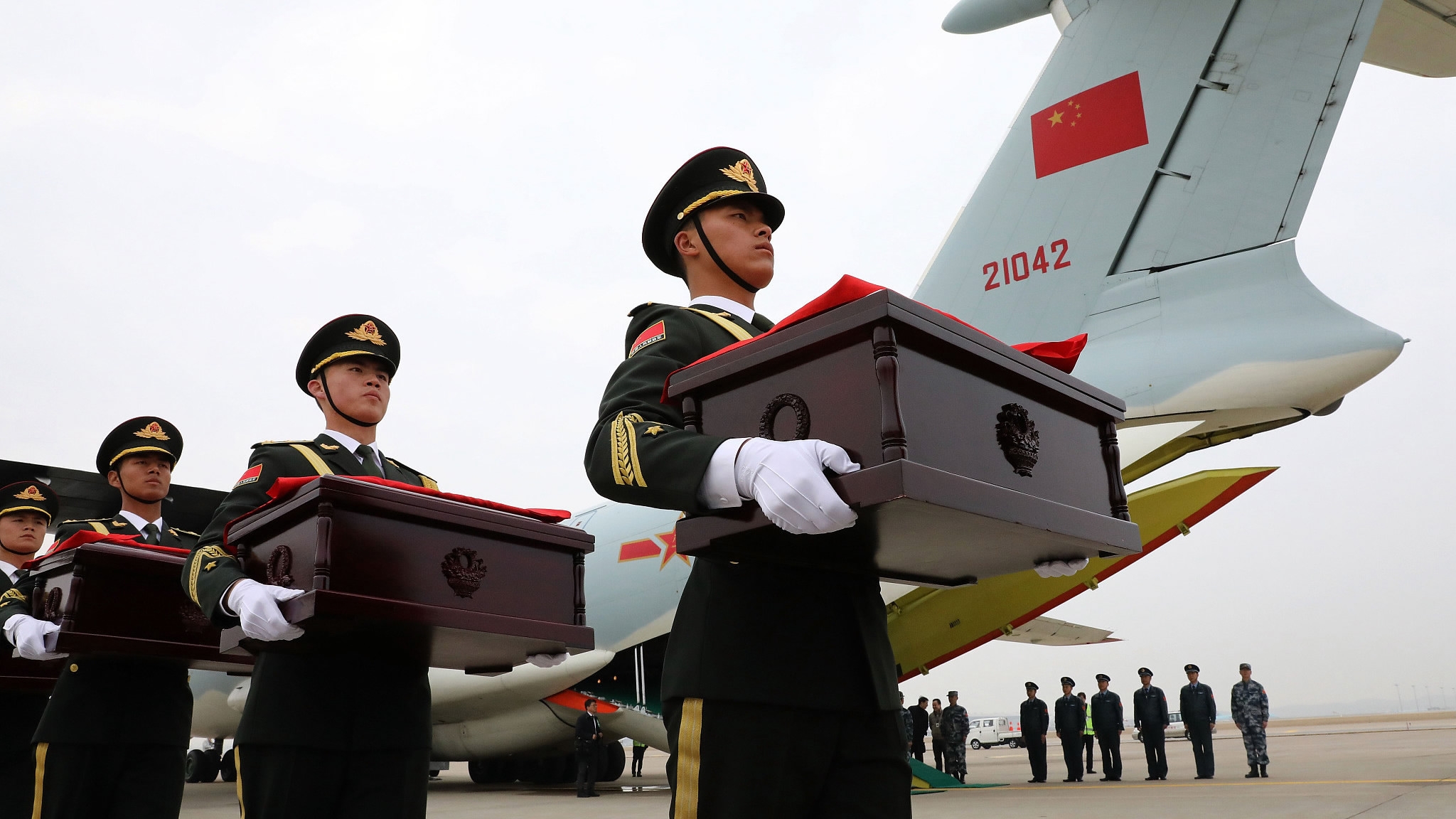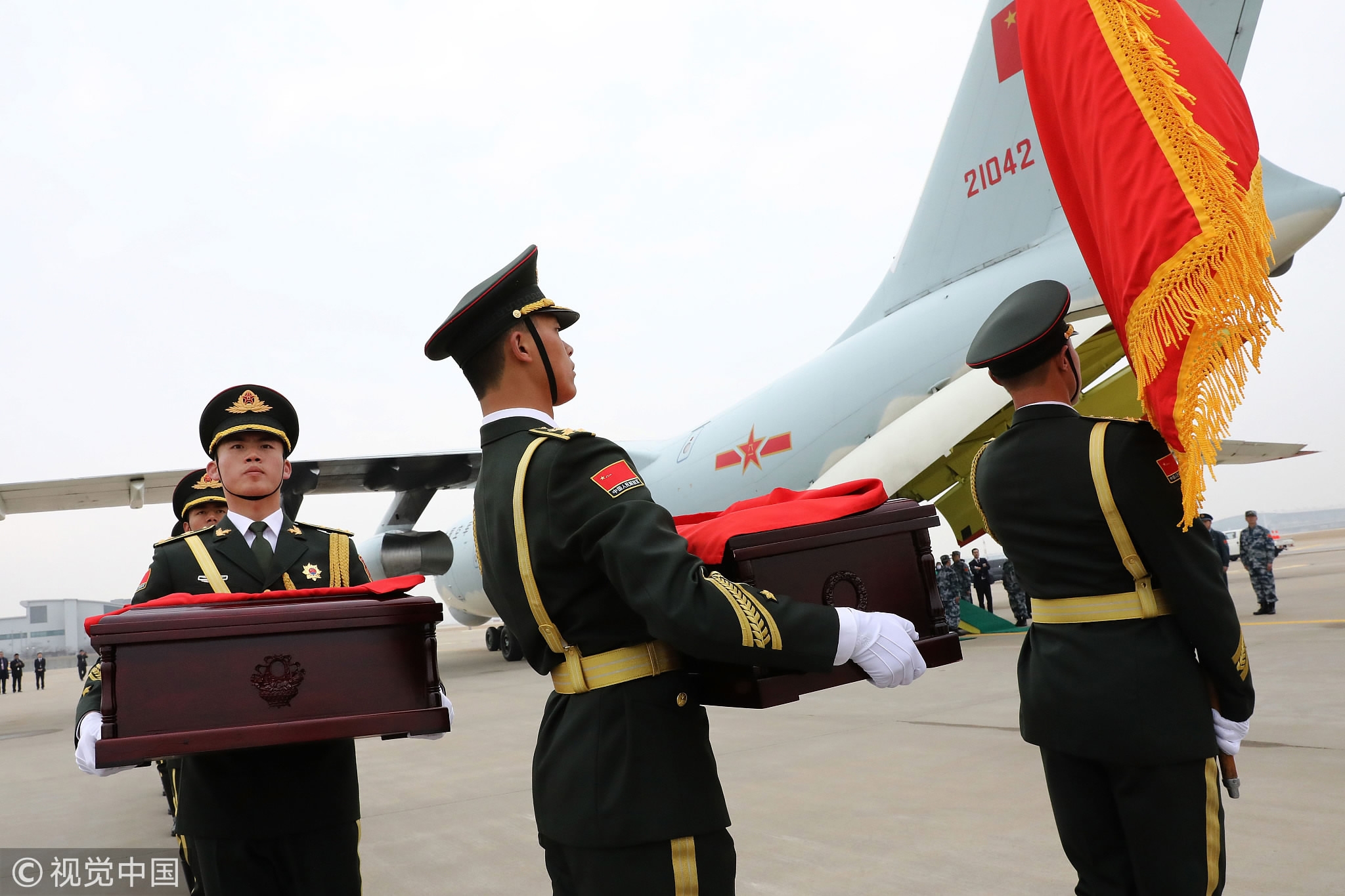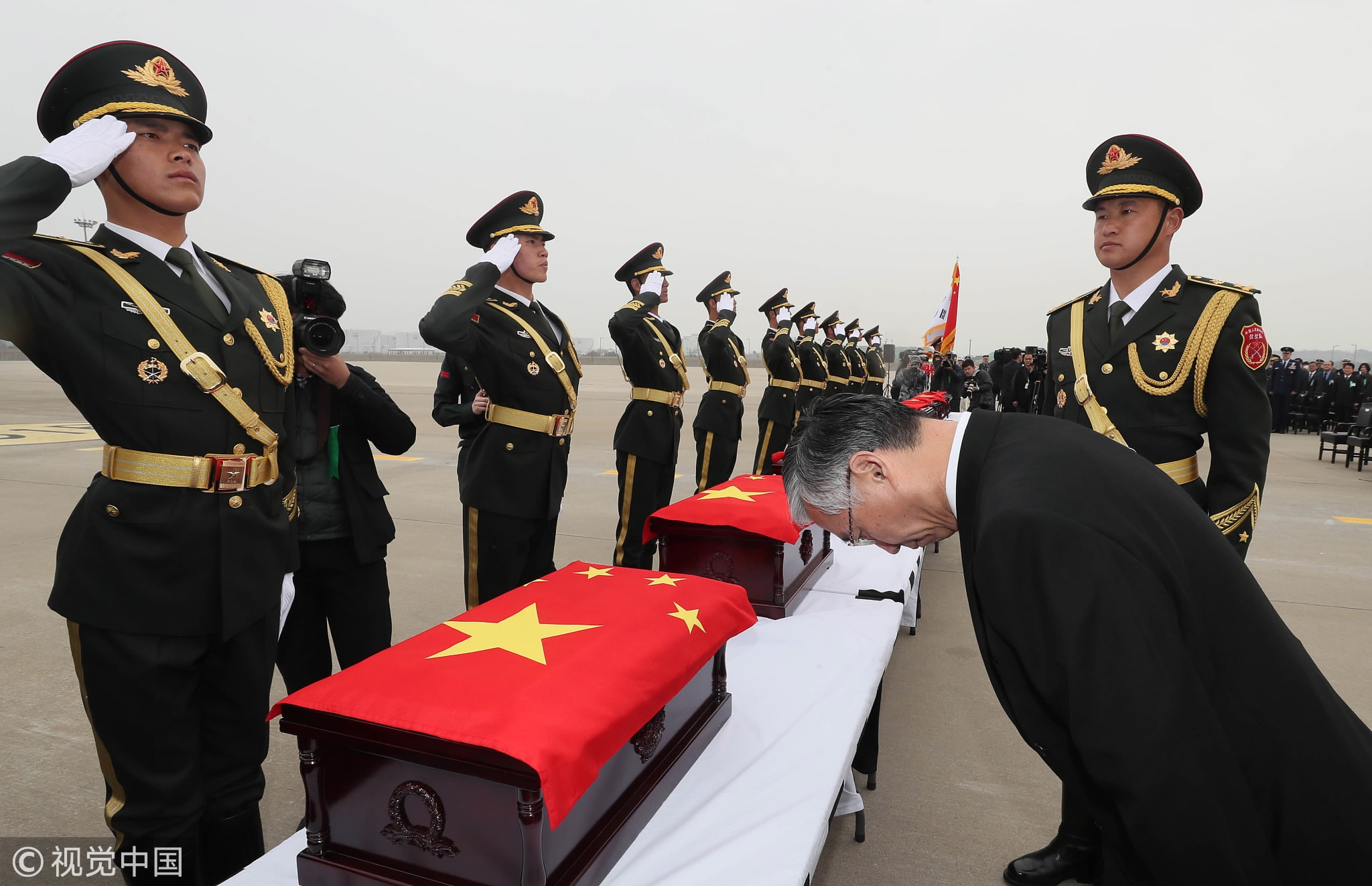
Opinions
23:12, 29-Mar-2018
Opinion: Return of soldiers' remains reflects solid China-South Korea ties
Guest commentary by Wang Chong

The Republic of Korea (ROK) returned the remains of 20 Chinese soldiers to China on Wednesday, allowing the sacrificed young men to finally rest in their homeland after more than six decades of residing in the country where they fought.
This act exemplifies the tradition of being buried in one's homeland after death. More than that, the return demonstrates the consolidation of China-South Korea relations.
Both countries scheduled the return of the soldiers just before China’s Tomb-Sweeping Day – a time when the Chinese people would honor their ancestors at grave sites – signaling mutual understanding between two similar cultures.
In the 1950-53 Korean War, China fought on the side of the Democratic People's Republic of Korea (DPRK) against the US-led UN forces.
With the signing of the Korean Armistice Agreement, which aimed at ceasing the hostilities of the war, the Korean Peninsula was separated into two nations – the DPRK and the ROK. Meanwhile, Beijing remained Pyongyang’s friend.

March 28, 2018Chinese soldiers carry caskets containing the remains of Chinese soldiers during the handing over ceremony at the Incheon International Airport in Incheon, South Korea. /VCG Photo
March 28, 2018Chinese soldiers carry caskets containing the remains of Chinese soldiers during the handing over ceremony at the Incheon International Airport in Incheon, South Korea. /VCG Photo
Since China and South Korea developed diplomatic relations in 1992, the two countries have fast-tracked the development of bilateral ties, both politically and economically.
In 2013, then South Korean president Park Geun-hye offered to return the remains of Chinese soldiers in a gesture of goodwill. So far, Seoul has sent a total of 589 sets of remains back to China.
On March 28, 2014, the remains of 437 Chinese soldiers killed in the Korean War were returned and buried in Shenyang, capital of northeast China's Liaoning Province. It has since become an annual event.
2016 marked a turning point in Beijing-Seoul relations, which were overshadowed by the looming deployment of the Terminal High Altitude Area Defense. However, the return of bodies proceeded as usual, highlighting the stable ties between the two countries in the midst of adversity.

Chinese ambassador to South Korea Qiu Guohong bows to a coffin containing the remains of a Chinese soldier killed in the 1950-53 Korean War at Incheon airport, west of Seoul, March 28, 2018. /VCG Photo
Chinese ambassador to South Korea Qiu Guohong bows to a coffin containing the remains of a Chinese soldier killed in the 1950-53 Korean War at Incheon airport, west of Seoul, March 28, 2018. /VCG Photo
The ties between China and South Korea should be cherished because they are not just conducive to both countries and peoples but also favorable to the overall peace and stability in Northeast Asia. More importantly, the return of the remains this year happened right before the upcoming inter-Korean summit and the possible DPRK-US meeting.
Regarding China’s policy on the Korean Peninsula, it is wise to keep balance between the two sides. Though the dead soldiers will never again see the light of day after the catastrophic war over six decades ago, all stakeholders in the region should carry forth their spirit and work together for lasting peace.
(Wang Chong is a senior research fellow with the Charhar Institute, a non-governmental think tank in China. The article reflects the author's opinion, and not necessarily the views of CGTN.)

SITEMAP
Copyright © 2018 CGTN. Beijing ICP prepared NO.16065310-3
Copyright © 2018 CGTN. Beijing ICP prepared NO.16065310-3